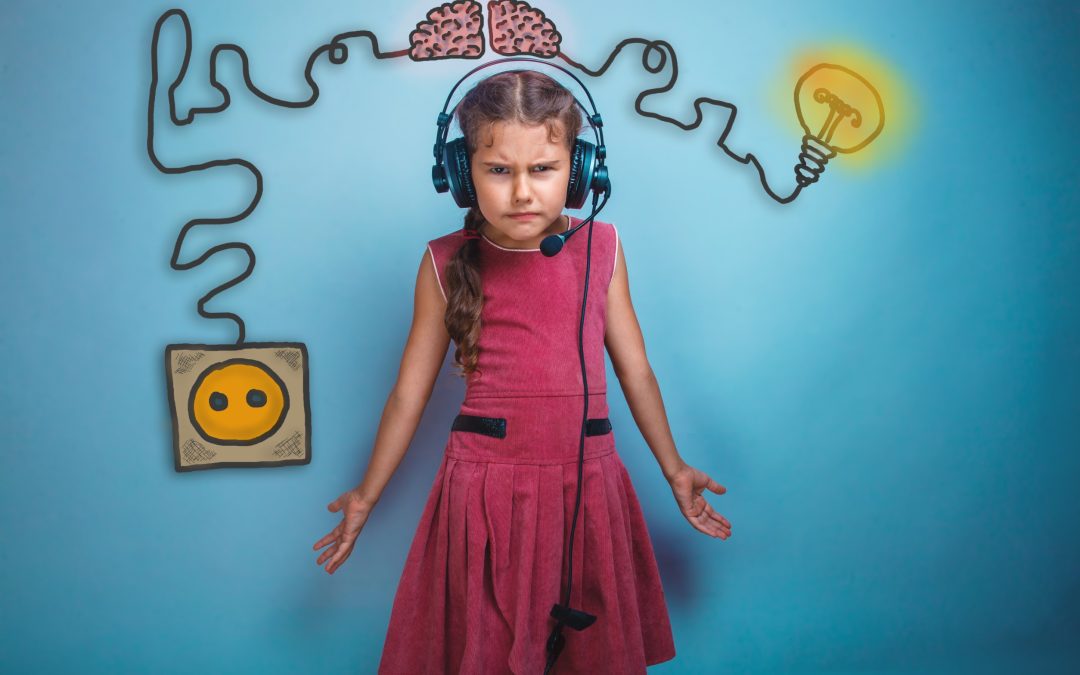Are you wondering what is auditory processing disorder (APD)? If so, you’re not alone; countless children and adults are struggling with this condition. Characterized by difficulty analysing sound-related information effectively and accurately, APD can affect the way people listen to, remember, and process complex language information like speech sounds.
It can vary in severity from simple challenges perceiving pitch to more intense problems comprehending spoken instructions or responding appropriately in certain situations. Fortunately, a variety of interventions exist for those experiencing APD that can help them manage their symptoms and live full lives.
In this blog post, we’ll explain what auditory processing disorder is and how it affects individuals while providing resources about diagnosis and treatment options available to those suffering from the condition.
Defining Auditory Processing Disorder (APD)
Auditory Processing Disorder, or APD, is a complex neurological condition that affects individuals’ ability to process and interpret sounds effectively. Those with APD may struggle to distinguish speech from background noise, follow directions, or remember auditory information.
While the condition can lead to challenges in academic and social settings, early identification and intervention can improve outcomes. APD is distinct from hearing loss and requires a comprehensive evaluation to diagnose accurately. With proper support and understanding, individuals with APD can develop strategies to navigate the auditory world successfully.
Symptoms of APD and how they can be observed in children
Auditory Processing Disorder (APD) can be a challenging condition for children, as it affects their ability to process and understand sounds spoken to them. Symptoms can range from difficulty distinguishing speech in noisy environments to struggling to follow complex directions.
A child with APD may exhibit signs such as misunderstanding or misinterpreting what is said, seeming to ignore or tune out when someone is speaking, or showing difficulty with reading or spelling despite normal intelligence levels. Fortunately, with early intervention and proper diagnosis, children with APD can learn strategies to manage their condition and thrive in their daily lives.
Parents and educators need to observe these symptoms and seek professional help if necessary to ensure the best outcome for the child.
Diagnostic Methods for APD
When diagnosing auditory processing disorder (APD), having a thorough understanding of the various diagnostic methods available can make a world of difference. APD can be difficult to identify due to its many symptoms, which can range from difficulty understanding spoken language to struggles with reading and writing.
Some common tools used in diagnosis include behavioural tests, electrophysiological measures, and imaging techniques, all of which aim to assess the brain’s response to sound. While there is no single perfect test for APD, a comprehensive evaluation that includes multiple diagnostic methods can help paint a clearer picture of an individual’s auditory processing abilities.
By identifying and addressing the underlying causes of APD, individuals with this condition can receive the support and treatment they need to thrive.
Treatment Options for APD
When treating Auditory Processing Disorder (APD), there are several options available. One of the most common methods is auditory training, which involves specific exercises designed to improve a person’s ability to process sounds.
Another option is speech therapy, which can help individuals with APD understand and use language more effectively. Additionally, accommodations such as preferential seating in class or the use of visual aids can also be helpful.
It’s important to note that treatment for APD is often tailored to the individual and may involve a combination of different methods. With the right treatment plan, individuals with APD can improve their communication skills and enhance their quality of life.
Managing the Impact of APD on Daily Life
Living with Auditory Processing Disorder (APD) can pose several challenges in daily life, but with proper management techniques, individuals can overcome these obstacles. APD is a hearing disorder that affects the brain’s ability to process sounds, which can lead to difficulties in understanding speech and interpreting auditory information.
However, some strategies can help manage the impact of APD, including using assistive technology such as noise-cancelling headphones, practising active listening skills, and seeking support from professionals and loved ones. With these techniques, individuals with APD can effectively navigate daily life and improve their quality of life.
Exploring Strategies to Help Children with APD Thrive
For children with Auditory Processing Disorder (APD), it’s important to explore a variety of strategies and techniques to help them succeed. APD can make it difficult for children to process and interpret spoken language, leading to challenges in communication and learning. Thankfully, there are many ways to help these children thrive.
One effective approach is to incorporate visual aids, such as pictures or diagrams, to supplement verbal communication. Another helpful strategy is to break down information into smaller, more manageable chunks to reduce overwhelm.
Additionally, using repetition and reinforcement can aid in retention. By implementing these and other techniques, we can ensure that children with APD receive the tools and support they need to learn and grow.
About Us
At Carlisle Hearing Center, we are dedicated to providing quality care toward improving your hearing health and quality of life. Hearing-related issues can often make you feel alone, but with our technologically advanced, affordable hearing solutions and top-notch advice, you can confidently live your life, assured that we are always looking out for you and your loved ones! Contact us today to schedule your free hearing test and subscribe to our newsletter to learn more about our hearing solutions and the latest updates in the hearing aids industry!

